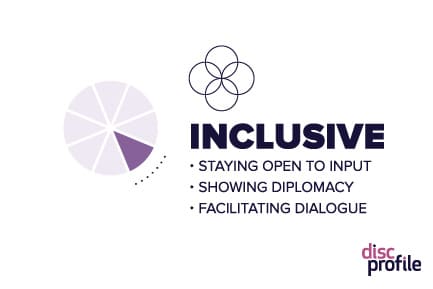People whose DiSC® profile shows an S style value steadiness and harmony. They tend to be patient, accommodating, and modest. S-style people often give others the benefit of the doubt. They are supportive and even-tempered, often playing the role of peacemaker.
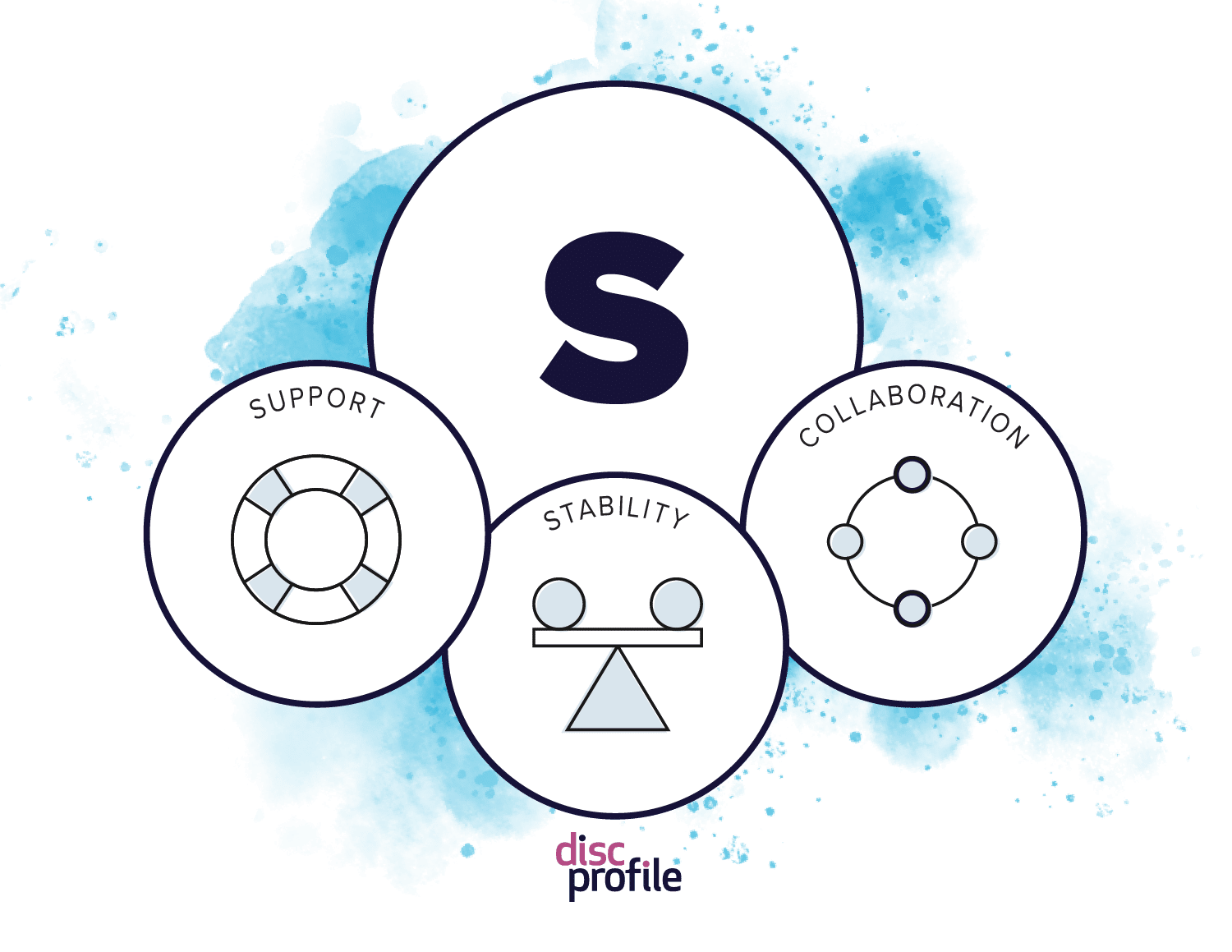
The DiSC® S personality type at a glance
- Traits: sincere, cooperative, gentle, supportive, patient, stable, consistent
- Driven by: helping others, a need for security
- Anxieties: change, loss of stability, offending others
- Influences others by: their accommodating nature, consistent performance
- In tense situations: keeps their own needs to themselves, become passive
What does it mean to have an S style in DiSC?
The Everything DiSC® assessment measures respondents on eight scales: Dominance (D), Di/iD, influence (i), iS/Si, Steadiness (S), SC/CS, Conscientiousness (C), and CD/DC. As you might expect, people with the S style score highest on the S scale.
Some respondents fall in the S quadrant but show tendencies that also align with i or C styles, assigning them Si or SC styles. Others fall solidly in the middle of the S quadrant.
Everyone is a blend of all twelve DiSC styles, but most people align best with one or two. All DiSC styles are equally valuable.
What is the opposite DiSC style of S?
One way to understand the various DiSC personalities is to look at what styles are across from each other on the DiSC circumplex. The S style is opposite the D style. S-style people likely score lower on D-scale measurements like bluntness and dominance. However, each DiSC respondent is unique, and some people have extra priorities in styles outside their own.

- D-style people are direct and forceful, while S-style folks are gentle and try not to hurt anyone’s feelings.
- The D-type personality is motivated by challenges and gaining authority, while S types are motivated by cultivating harmony and stability.
- D styles take pride in keeping their guard up so as to never look the fool. S styles, on the other hand, would much rather err on the side of trusting someone. Doubting someone who is being sincere feels like a greater risk than the possibility of being deceived.
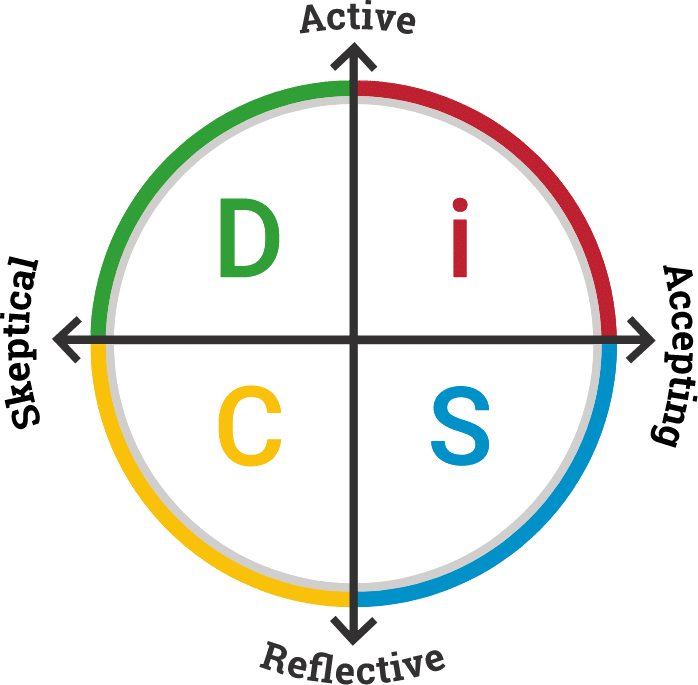
What motivates the S style?
People with DiSC S styles value stability, harmony, and helping others.
Stability
- S-style people like to know things are running smoothly, with no looming dangers on the horizon.
- They enjoy making steady progress toward a goal.
- They are likely more stressed than excited by a situation with lots of unknowns.
Harmony
- S-style personalities want minimal tension in their relationships and environments.
- They are quick to forgive and see another person’s point of view. This helps return the relationship to balance.
- They will use their warmth and their knack for diplomacy to help others get along.
Helping others
- To foster the harmony they crave, people with S personalities will go out of their way to make sure other people are happy.
- S styles are service-oriented people who feel valuable when they are helping others.
- S-type people like relating to those around them with compassion. They are empathetic listeners.
What are the S style’s driving assumptions?
Driving assumptions are the beliefs—often unconscious—that direct a person’s behavior. The person might not be able to defend these statements rationally, but they have a great influence on shaping personalities.
For the S style, thoughts such as these may be at the heart of many choices they make:
- If my world isn’t in harmony, things are bad.
- I should never burden other people.
- I feel like an imposter. I’m only half pretending that I know what I’m doing. Other people’s opinions must be more informed than mine.
- I can show my value by helping people.
These beliefs have both upsides and downsides. S-style people take great care with other people’s feelings, and put a lot of energy into communicating with tact. While this is often received as a kindness, it can also make S-style personalities appear hesitant or unassertive. Even though these behaviors come from a good place, when someone focuses so much on making others comfortable, they often give up social power and influence.
How does the S style handle stress?
You’ve likely heard the duck metaphor before: above the surface, the duck looks to be gliding along calmly, but under the surface, it is paddling like mad. This is an apt image of S-type people and stress. They often present a calm demeanor, meaning you may not be able to tell when they’re bothered or stressed out.
Rather than speaking up about their stress, S-style folks are likely to put pressure on themselves to figure it out alone. They don’t want to burden others with the weight of their problems.
At times, there are two opposing forces in the minds of S-type people under stress:
- They may be ruminating on a problem, playing it over and over in their minds.
- Or, they may be so busy pretending everything’s fine that they end up in denial.
Because S-style personalities are so focused on maintaining stable environments and making sure everyone is happy, they are especially sensitive to stressors that upset the harmony they crave.
Under stress, S styles may:
- internalize stress
- ruminate, fret over a problem
- pretend everything’s fine, both to others and themselves
- withdraw from the situation
- become overly focused on details that seem unimportant to others
How can I work well with S-style people?
People with DiSC S-type personalities bring a lot to their workplaces. Their even-tempered nature and excellent listening skills are assets on many different types of teams. Because they are so calm and accommodating, you may have to pay attention to subtler behaviors than with other styles.
Tips for working with S personality types:
- Leave space for them to speak. Cutting someone off is uncomfortable for S styles.
- Check in regularly on their stress levels and workload. They may not ask for help when they’ve taken on too much.
- S styles are not keen on self-promotion, so their contributions can fly under the radar. Be sure to notice and celebrate their work.
- Don’t dismiss their perspectives just because others have more forceful personalities.
- Be clear about deadlines and when you need them to make decisions.
- Understand that big changes or unstable work environments might be more stressful for them than for other styles.
- Avoid being unnecessarily confrontational. Start with a more easygoing approach.
The S style and teamwork
In group situations, people with S styles often play the peacemaker role. They seek compromise and try to make everyone happy. S-style people want to be agreeable when someone else pitches an idea. They want to support that person and their idea. But of course, not every idea is a good one, so S types may need to gain comfort with expressing their critical thinking aloud.
S styles can genuinely consider other people’s points of view, taking their own ego out of the equation. That’s a huge asset to organizations. A lot of bad decisions get made because of someone’s ego.
Strengths of S-style teammates:
- even-tempered and diplomatic
- empathetic listeners
- promote harmonious environments
- enjoy collaborating
- warm and welcoming to new team members
Challenges of S-style teammates:
- hold back their opinions
- tend to overcommit and then “suffer in silence”
- often lack a sense of urgency
- are hesitant to step into the lead or make bold decisions
- are passive in conflict
Read more: Team building
What if there are many S-style people on a team?
The combination of DiSC styles among a group will determine a larger DiSC group culture. When a group displays an S culture (with many people of S, Si, and SC styles), it tends to be stable, predictable, and friendly. We call this the “get along” team.
Advantages of the S group culture:
- commits to getting the job done right
- provides a relaxed atmosphere
- allows a high level of teamwork
Drawbacks of the S group culture:
- fails to challenge the way things have always been done
- struggles with indecisiveness
- allows resentment to brew beneath the surface
Read more: DiSC S group culture
Which careers are good for DiSC S personalities?
This is a common question with a complex answer. The truth is that people of any personality type can succeed in any field. Yes, you may find a higher percentage of certain styles in certain job types. Perhaps you meet more i-style individuals in jobs that involve interacting with lots of people or more C-style folks in jobs requiring analysis and research. But basing career decisions (or hiring decisions) on personality type alone is not recommended.
Your DiSC profile can be one data point of many you consider when looking at careers. Review what your DiSC profile says about your priorities and where you get your energy to help frame your search for fulfilling work.
For example, people with S styles tend to value harmonious and stable environments. They want the opportunity to exercise empathy, help people, and collaborate. These folks could explore jobs in areas such as health care, human resources, customer support, counseling, social work, communications, research in the field or lab, environmental science or outdoor education, food systems, library science, and academic advising. Of course, there are many other fields that will allow S-style people to build relationships and have a positive impact.
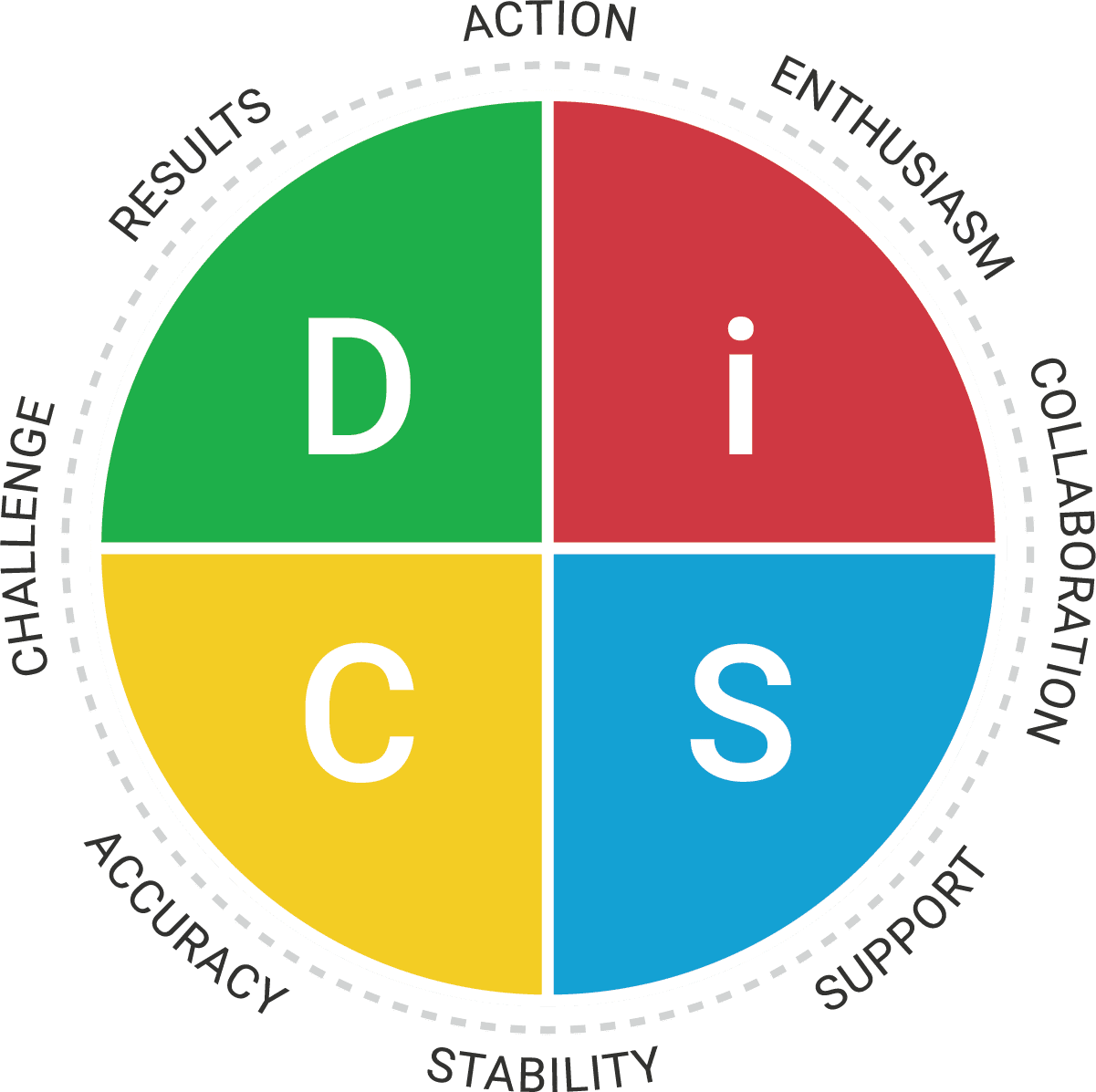
Do S personality types make good leaders, managers, and salespeople?
Are S types good leaders?
People of all DiSC types make good leaders. Your DiSC style informs your natural leadership strengths and challenges. Effective leaders learn to call upon different DiSC styles based on the situation at hand.
Research from Wiley shows that, compared to other leaders, the S style gets significantly higher ratings on things like:
- staying open to input
- showing diplomacy
- facilitating dialogue
S-style people are inclusive leaders: sincere, accommodating, and consistent. They like to listen to different perspectives and make decisions where everyone wins.
Read more: S-type leaders
What are S-style people like as managers?
Managers with the DiSC S style prioritize giving support. They are:
- sincere
- diplomatic
- patient listeners
- willing to put their own needs aside to support their team
S-style managers tend to look for stability and prefer an orderly, peaceful environment. They may need to remind themselves that conflict and risk-taking are part of a healthy team.
S-type managers probably enjoy:
- helping a team progress steadily toward a goal
- supporting people so they can do their best work
- creating a safe, warm environment
S-type managers likely don’t enjoy:
- delegating
- making quick, firm decisions for the group
- dealing with angry or argumentative people

Read more: Management
Do S-style people make good salespeople?
Every DiSC style has natural strengths and challenges when it comes to sales. That’s why you’ll find successful salespeople with all different styles.
S-style salespeople take time to build sincere, trusting relationships. They display a genuine interest in their customers and take pride in supporting them over the long run.
Other characteristics of S salespeople:
- guide customers rather than pressure them
- tactful and diplomatic
- treat people with respect
- good listeners
- supportive
- trusting
- dependable
- warm and even-tempered
The overriding priority for salespeople with S personality types is sincerity.
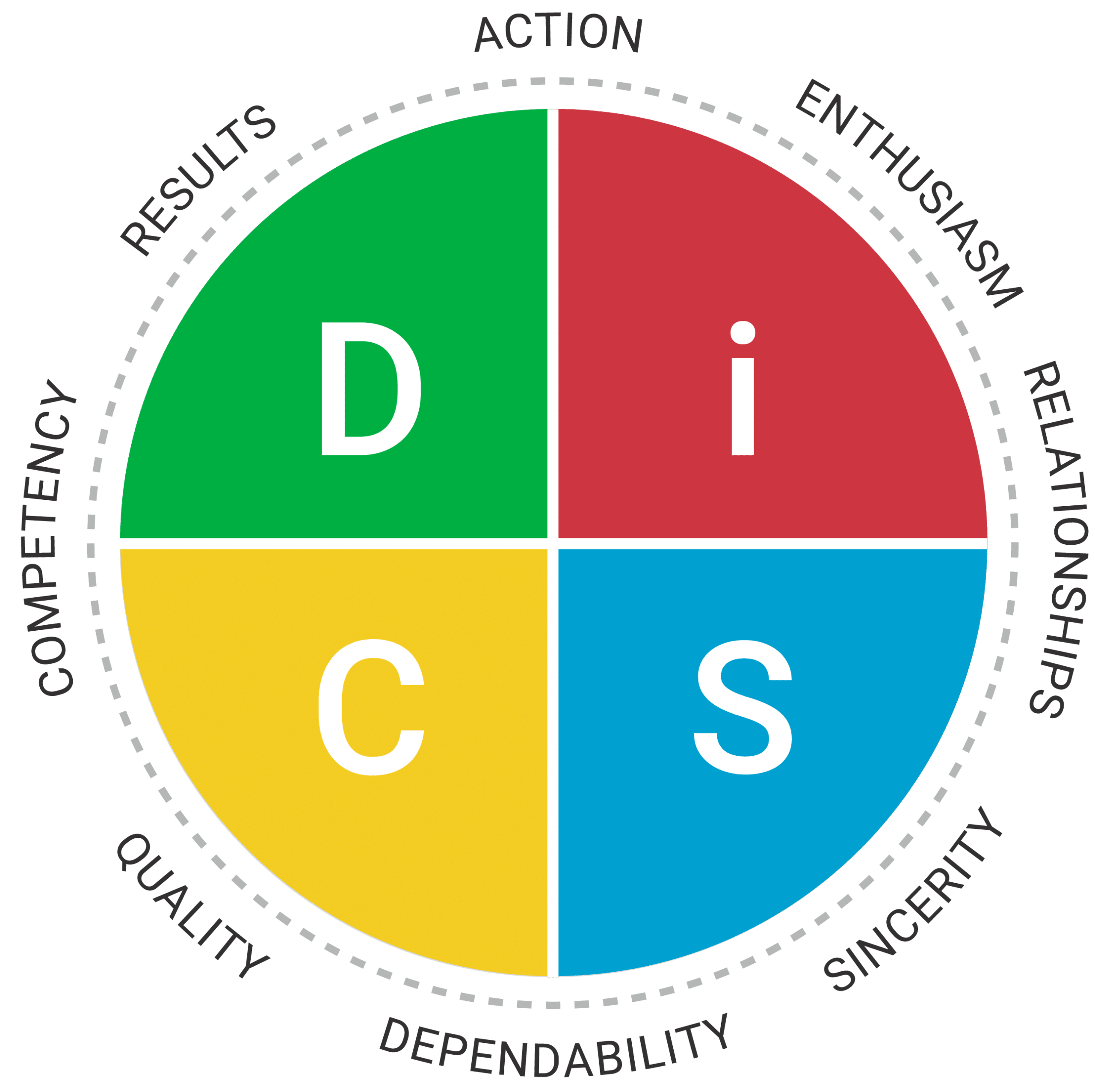
Read more: The 8 styles of salespeople
How does the S personality type deal with conflict?
The way S-style people handle conflict is strongly driven by their need for harmony. Conflict is, in many ways, the opposite of harmony. So it makes sense that even minor conflict is quite stressful for S-type folks. They will go to great lengths to avoid conflict.
“The S style will not only avoid the things that cause conflict, but they’ll also avoid the things that cause the things that cause conflict. Like, for instance, generally avoiding argumentative people.”
S-style people often find ways to work around people they find aggressive. Having to argue or speak forcefully just to be heard is exhausting for them, and just not a sustainable way to work or live.
Conflict is a part of every workplace, and research shows that some amount of conflict is actually healthy, when this conflict is productive, not destructive.
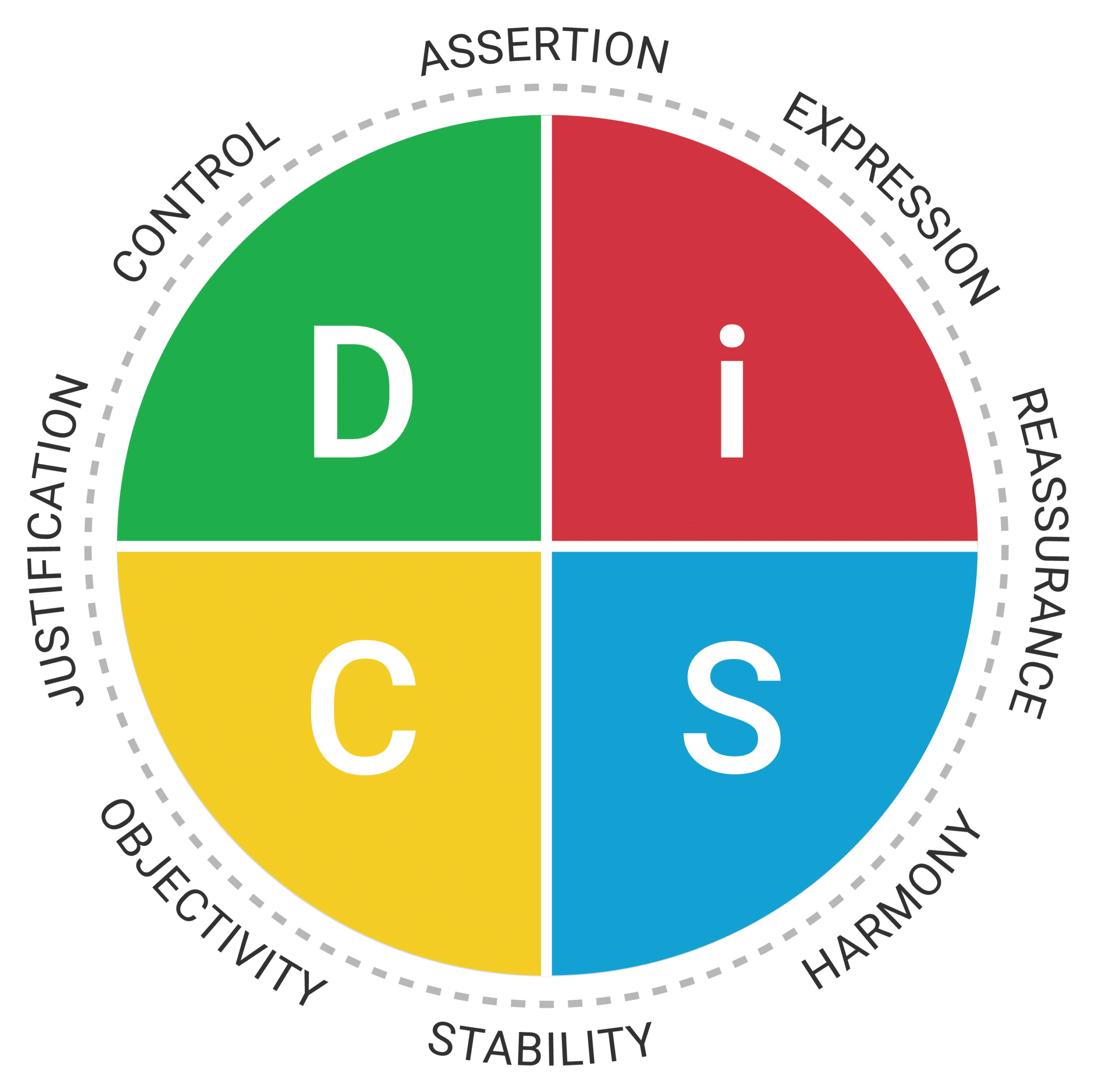
Tendencies of S styles that are productive during conflict:
- having awareness of other people’s needs and priorities
- listening with empathy
- being willing to compromise
- presenting a diplomatic and reassuring demeanor
The same personality traits driving the above tendencies can also drive destructive tendencies during conflict, like:
- giving in to please others
- withdrawing or becoming passive
- ignoring problems/overvaluing harmony
- letting issues simmer
If you are in conflict with someone with an S style, try these tips:
- Address the situation directly, but avoid taking an unnecessarily confrontational approach.
- Encourage them to share their opinions.
- Show sincerity.
- Demonstrate that you care about their feelings and the feelings of others involved.
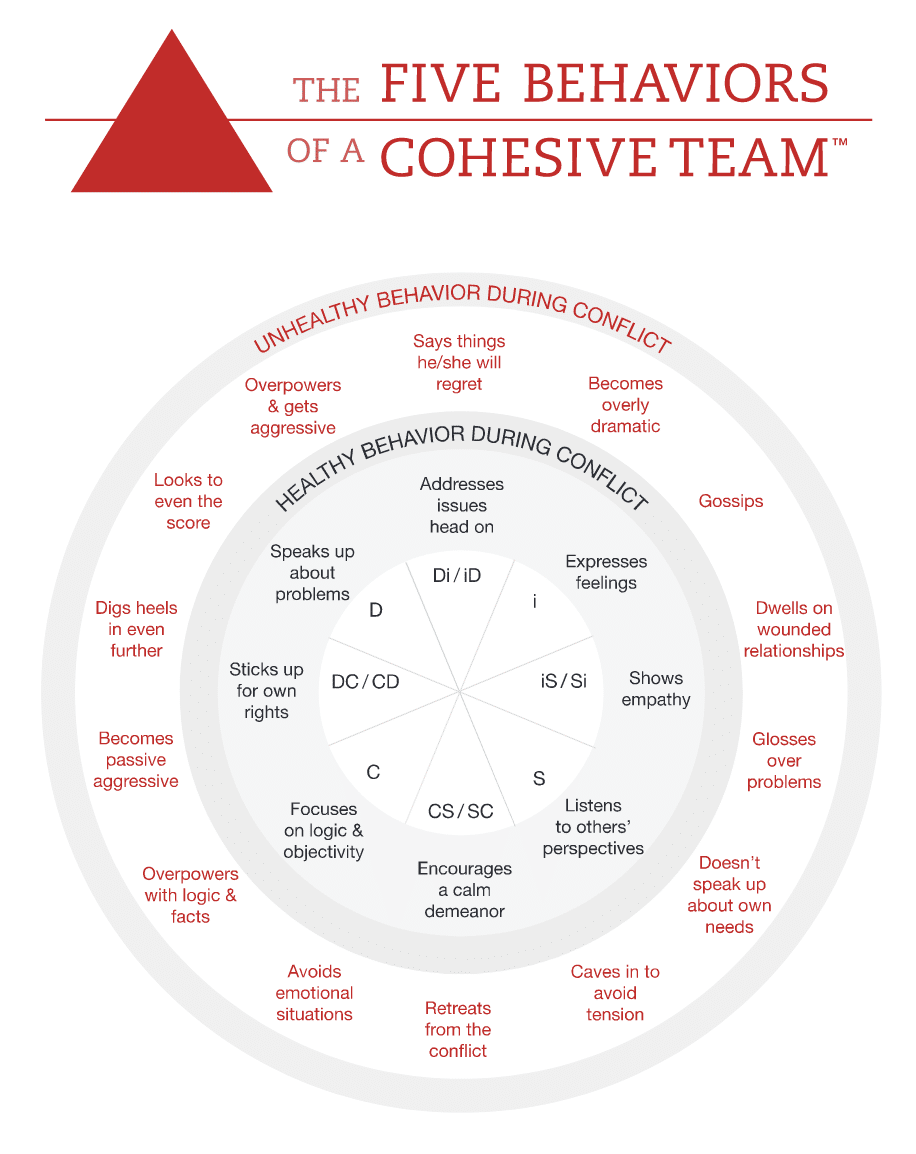
Is the DiSC S style emotionally intelligent?
Emotional intelligence (EQ) is not something measured on a single scale. “Being emotionally intelligent” means different things in different situations. And, contrary to what some think, EQ is not an abstract quality that either you have or you don’t. It is a series of skills and mindsets that people can develop through practice.
Like all DiSC styles, S-type people have both natural EQ strengths and challenges. Of the eight EQ mindsets described in Everything DiSC Agile EQ, S styles align most closely with the receptive mindset. This means S-style people are likely to:
- stay open to others’ ideas
- seek compromise
- be willing to set aside their own needs and preferences
- pick up on cues when something is wrong
- reach out and offer support
- give people the benefit of the doubt
- treat others with compassion
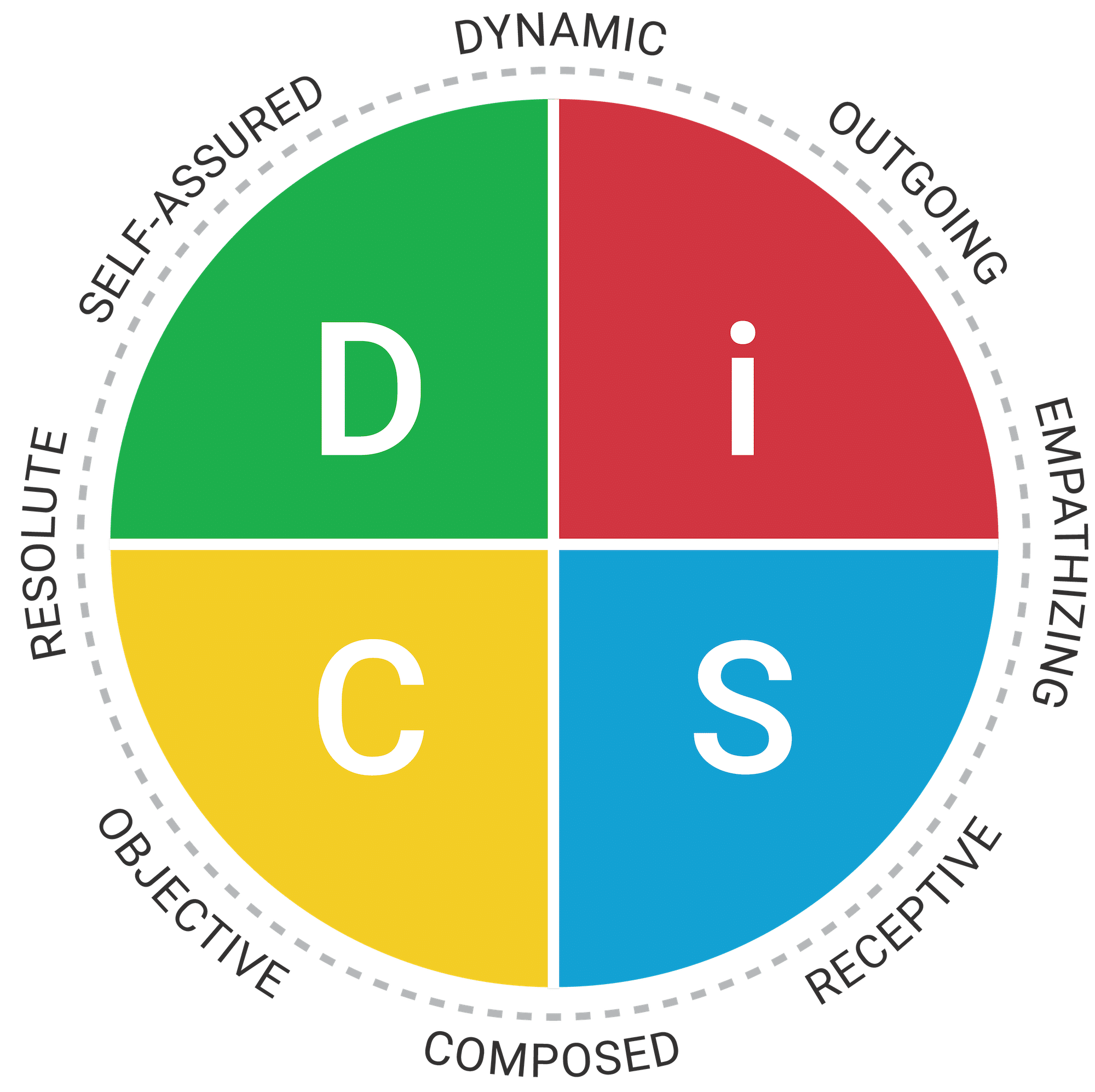
Read more: Emotional Intelligence (EQ)
What are some growth opportunities for DiSC S styles?
Unlike many other personality assessments, Everything DiSC is developmental rather than solely descriptive. People who take the assessment gain not only an understanding of their personalities but also an individualized plan for personal growth.
S-style people may benefit from working on:
- speaking up about problems
- standing behind their opinions
- valuing their own needs as much as they value others’
- sharing their ideas, even if they are not fully thought out
- cultivating more urgency or a quicker pace when the situation calls for it
- networking, building more personal and professional connections
What is my DiSC style?
Do you have the DiSC S personality type? If so, how does yours differ from the typical S type? Taking a DiSC assessment is the first step toward meeting many personal development goals. Not only will you understand your own behaviors more, but you’ll learn how to form better relationships at home and work. We recommend starting your DiSC journey with Everything DiSC Workplace.


